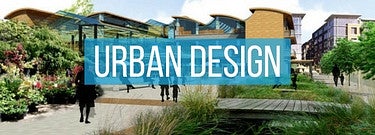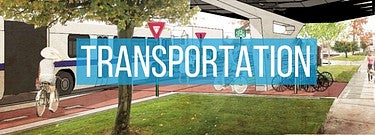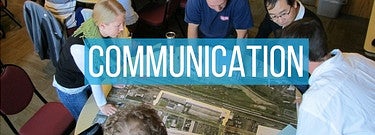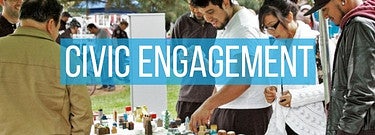
SCI is a national leader in research connecting sustainable city form with active transportation, ecological services, and healthy residents.
SCI engages and informs faculty, students, and practitioners from multiple disciplines on timely and significant issues. SCI research focuses on cross-disciplinary collaboration and works across all university institutional functions. Learn more about Framing Livability, the SCI Research Theme for 2015-2017.
Areas of Research

- Sustainable urban design framework
- Retrofitting suburbs
- Eco-districts
- Sustainable economic development

- Active transportation and walkable communities
- Evaluating how transportation budgets reflect livability goals
- Transportation Oriented Development and Latino communities
- Integration of transportation, climate change and land use plans
- Triple Bottom Line framework for transportation

- Communicating livability for transportation projects
- Analysis of wording, marketing and communication of ballot initiatives
- Compilation of best-management strategies for communicating livability
- Examination of messaging techniques used by public agencies

- Civic involvement and decision making through mobile mapping
- Engaging communities in design and planning
Research Themes
SCI selects Research Themes that coordinate grant funded research, experts-in-residence, student research, lectures, and public outreach along a timely topic related to sustainability and the built environment. Deeply intertwined with the mission of SCI, the Research Themes leverage the university to help advance sustainability goals with a focus on translating research into practice. Research Themes are developed with non-academic partners and targeted professional audiences to answer relevant, cross-disciplinary needs. The activities in these themes are meant to address the large gap that often exists between policymakers, city officials, practitioners, and academics.
By leveraging the resources and capacity of the University of Oregon and SCI we can provide unification, direction, and an in-depth understanding of the relationship between research, policy, and community education.
Current Research Theme 2015-2017
Framing Livability: Defining and Messaging
While livability holds potential as a new means of framing and cultivating buy-in for complex development projects, it is a vague concept with multiple definitions that vary depending on the demographics of the audience and geographic location of the development project. Given its breadth, it is unclear what aspects of livability connect best with different populations, and which aspects would be most effective in eliciting public support.
Recognizing this need, the Sustainable Cities Institute (SCI) at the University of Oregon and the University of Oregon’s School of Journalism and Communication’s (SoJC) faculty specializing in strategic communication have developed a series of research projects, public presentations, and avenues of education to delve into the concept of livability for 2015-2017. By defining livability and establishing clear, concise metrics to explore new ways of communicating sustainable principles that emphasize public health and financial benefits in addition to environmental considerations, our work seeks to answer how sustainability-focused community development efforts can be communicated in the most effective way to garner public support. By merging the resources, expertise, and energy of SCI and SoJC, we are fostering a heightened and engaged understanding of livability, its opportunities for communities, and a lasting cross-disciplinary partnership within the University of Oregon.
Projects developing under the current Framing Livability research theme are:
- Framing Livability: A Strategic Communications Approach to Improving Support for Public Transportation in Oregon. Prof. David Remund, Ph.D, Nico Larco, AIA, Deb Morrison, Ph.D. and Kelli Matthews.
- Effectiveness of Transportation Funding Mechanisms for Achieving National, State, and Metropolitan Economic, Health, and Other Livability Goals. Robert Zako Ph.D. and Rebecca Lewis, Ph.D.
- Defining Livability with academic case studies. Tyce Hermann and Prof. Rebecca Lewis, Ph.D.
- Successful Transportation Ballot Initiatives. Matthew Bean and Prof. Rebecca Lewis, Ph.D.
- Case Studies Development - Livability Communication. Matthew Nicholson and Prof. David Remund, Ph.D.
Download Information about Framing Livability
